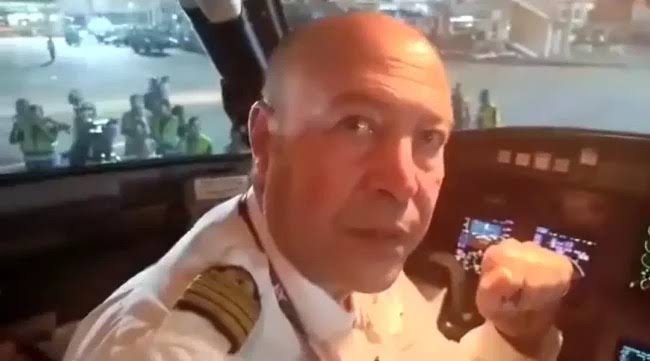Diversion of Super Eagles’ flight based on Libyan Authorities’ order – Tunisian Pilot makes fresh revelations – Crime Channels

Diversion of Super Eagles’ flight based on Libyan Authorities’ order – Tunisian Pilot makes fresh revelations
The Tunisian pilot who flew Nigeria’s Super Eagles for the 2025 African Cup of Nations (AFCON) qualifier has detailed the unexpected diversion of their flight to the remote Al-Abraq airport instead of their intended destination in Benghazi.
During the crucial journey, the chartered aircraft was diverted mid-flight to Al-Abraq, a small airport primarily used for Hajj operations, leaving players and officials stranded for over 16 hours without assistance from the Libyan Football Federation.
In a video interview shared by sports journalist Pooja Media on October 15, the pilot clarified that the diversion was mandated by Libyan authorities and not a decision made by him.
“The flight plan was to land in Benghazi, Benina, and we had approval from the Libyan Civil Aviation Authority,” he stated.
“However, as we began our descent, we were instructed to divert to Al-Abraq, which is almost 150 miles away—about 300 kilometers to the east. It wasn’t even listed as an alternate airport, which raises safety concerns in aviation.”
He recounted asking to land in Benghazi multiple times, emphasising that he had authorisation for that destination.
“When I requested to land in Benghazi, they insisted it was an order from the highest authority. I was told I had to divert to Al-Abraq,” he explained.
The pilot expressed concern about the implications of such a diversion on fuel calculations, noting that safety protocols are critical in aviation.
“I warned them several times that I could be in trouble with fuel, but they reiterated that it was a directive from the highest authority,” he said.
“Fortunately, we made it and landed safely.
“The truth was we were going to Benghazi, and I can show you the evidence of the approval, I have it. But at the last minute, they changed their mind and changed the airport.
“There is no ILS (Instrument Landing System), no air navigation approach, no VHR (VHF Omnidirectional Range). We had to make a visual landing, which is particularly difficult by night with marginal weather.
“It was not an easy matter at all. When a pilot hears this, he will understand that it was not an easy thing to land under such conditions. Thank God we made it safely.”





